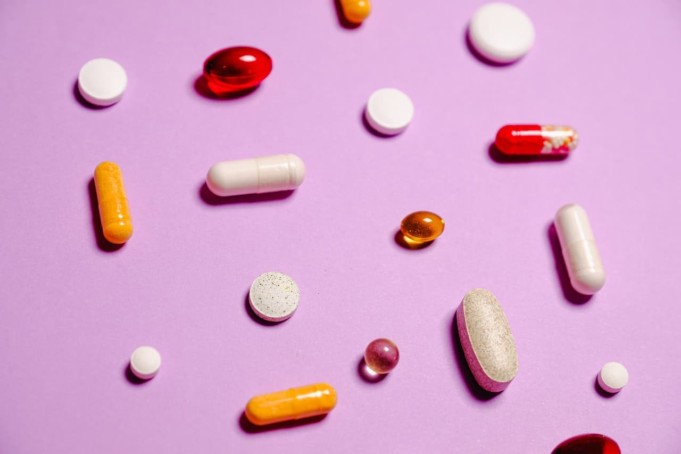We all are aware that medications should be taken exactly as prescribed, in relations to dosage and regimen, and it also depends on what you are eating while treating yourself.
This is a list of food pairing and nine drugs that don’t go hand in hand and should never be taken together.
1. Bronchial spasmolytics
The drugs prescribed are for bronchitis, asthma, and other lung diseases.
Drugs: albuterol, theophylline.
Things to avoid when taking any of these drugs would include drinks and food rich containing caffeine. Albuterol and theophylline both help to stimulate the nervous system. It might cause serious discomfort if there is too much stimulation from any of the drugs and caffeinated products.
Taking these drugs and any caffeinated food or drink can cause nervousness and anxiety, so it is best to cut out your intake of caffeine throughout the duration of your treatment.
Also note that caffeine toxicity is increased when taken theophylline, hence, be very careful with what you eat and drink. It is also best to reduce your intake of fatty foods as it may increase the bioavailability of theophylline and can lead to an overdose. We don’t want that do we?
2. Antihypertensive drugs
The drugs prescribed are used for the treatment of kidney disorders and heart diseases.
Drugs: enalapril, captopril, ramipril.
You should avoid foods rich in potassium when taking any if these drugs. Medication of any if the drugs above increases the level of potassium in your blood, and this can lead to dyspnea and arrhythmia. It is very important that you cut out your intake of soup, banana and spinach.
3. Anti-arrhythmic drugs
The drugs prescribed are for the prevention and treatment of heart failure.
Drugs: digoxin.
You should totally avoid liquorice. This is because liquorice, or liquorice, contains glycyrrhizic acid, and this acid can act with digoxin and can cause distortion in heartbeat disorder and even lead to cardiac arrest.
Liquorice can also be found in cakes, beer, sweets and other confectioneries as well. Herbs such as senna or St. John’s wort decreases digoxin’s activity in the body. Also, dietary fibres such as bran reduce the effectiveness of digoxin. So it is advised that you use your pills 2 hours before or after meals.
4. Bad cholesterol-lowering drugs
These drugs are prescribed for the treatment of diabetes mellitus, obesity, and cardiovascular disorders.
Drugs: lovastatin, atorvastatin, simvastatin, fluvastatin, pravastatin, and rosuvastatin.
The foods that do not go well with these drugs can cause super increased absorption of these drugs and can result in the risk of overdose and other side effects.
Example of such food is the grapefruit, and the potency of one tablet swallowed with grapefruit juice can be likened to taking about 20 tablets with water. This applies to other citrus fruits families such as lime, bigarade, orange and pomelo.
5. Blood Thinners
These drugs prescribed are used in the treatment and prevention of blood clots.
Drugs: warfarin.
The foods that don’t go well with warfarin can cause your blood to thin and even cause bleeding. You should do well to minimise your intake of garlic, ginger and cranberry when taking warfarin.
You should also watch your intake of certain spices such as cinnamon, cayenne pepper, and turmeric. On the other hand, vitamin K can limit the potency of the drug, and you can get an abundance of it in cabbage, broccoli, spinach and turnips. Consult with your doctor for better dietary advise.
6. Thyroid hormones
The drugs are used for the treatment of thyroid and prevention of hypothyroidism.
Drugs: levothyroxine.
You will be doing more harm than good if you eat fibre, chestnut and sour when taking levothyroxine. The drug and drugs similar to it such as L-thyroxine, Bagothyrox and Euthyrox shouldn’t take with soul or any foods made from it. This is because it can cause the body not to absorb the drug. Fibre-rich foods and chestnut have the same effects.
7. Antibiotics
Antibiotics are used in the treatment of bacterial infections.
Drugs: Ciprofloxacin, Tetracycline, Penicillin.
Antibiotics remain potent until when they are taken with dairy products because the abundance of calcium in the dairy product such as milk, can form hard-to-excrete compounds. This can also result in a drastic decrease in the drug’s potency.
8. Painkillers
These drugs are effective in the treatment of muscle pains, headaches and inflammations.
Drugs: Ibuprofen, Panadol, Paracetamol, Felvin, Tramadol.
Stay away from soft drinks when taking any if these drugs. None of the drugs listed above is compatible with soft drinks in any way. The acid and carbon dioxide in the fizzy drinks causes the drug to absorb too quickly, and this can lead to an increase in the blood concentration.
This can be very fatal and increase your risk of toxicity, causing even more problems for the kidneys.
9. Antidepressants
These are prescribed for cases of prolonged depression.
Drugs: all MAO inhibitors (nialamide, tranylcypromine, phenelzine).
This drugs should never be taken with foods rich in tyramine. This is because antidepressants have a monoamine oxidase inhibitor that connects with tyramine and can lead to a critical increase in blood pressure.
Note: Tyramine is an amino acid, and it is formed during the ageing of protein-rich foods.
They can be found abundantly in meat or fish jerky, aged cheese, canned meat or fish, and dry sausages. It is very important that you can solve your doctor before taking any medications.
The human body is very sensitive and special, so you should never take any chances in experimenting unless when a drug is prescribed by a professional.
So I would advise you to seek your doctor’s opinion before taking any drug with any drink that isn’t water, or food. I hope you enjoy reading this article? Feel free to leave your comments below.












